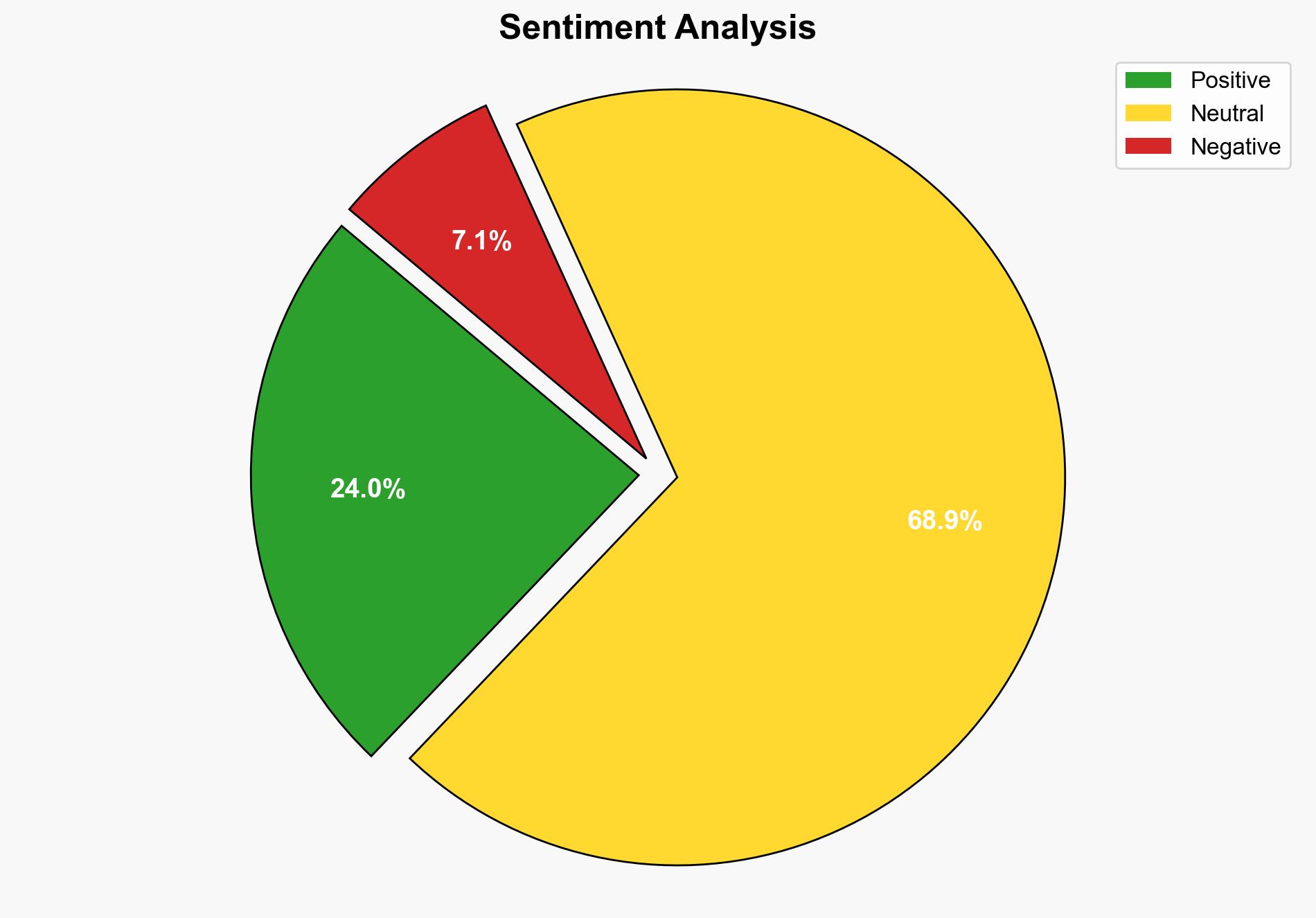Tech CEOs Praise Donald Trump at White House Dinner – Wired
Published on: 2025-09-05
Intelligence Report: Tech CEOs Praise Donald Trump at White House Dinner – Wired
1. BLUF (Bottom Line Up Front)
The most supported hypothesis is that the tech CEOs’ praise of Donald Trump is primarily strategic, aimed at securing favorable policies and investments in the United States. Confidence in this hypothesis is moderate, given the potential for alternative motivations. It is recommended to monitor subsequent policy changes and investment announcements from these tech companies to validate this hypothesis.
2. Competing Hypotheses
Hypothesis 1: The tech CEOs’ praise is genuine, reflecting a true alignment with Trump’s policies and leadership style. This could indicate a shift in the tech industry’s political alignment or a response to specific policy benefits.
Hypothesis 2: The praise is strategic, intended to curry favor with the administration to secure beneficial policies, avoid tariffs, and promote investment in the U.S. This aligns with historical patterns of corporate diplomacy.
Using ACH 2.0, Hypothesis 2 is better supported as it aligns with the CEOs’ historical behavior of engaging with political figures for strategic advantages. The absence of key figures like Elon Musk and Jeff Bezos, who have previously been critical of Trump, further supports the idea of selective engagement based on strategic interests.
3. Key Assumptions and Red Flags
Assumptions include the belief that tech CEOs are primarily motivated by economic incentives and that their public statements are not necessarily reflective of private sentiments. A red flag is the lack of explicit policy commitments from Trump in response to the praise, which could indicate a one-sided strategic maneuver. The absence of certain influential tech figures suggests potential dissent or alternative strategies within the industry.
4. Implications and Strategic Risks
The alignment of tech leaders with political figures could influence regulatory landscapes, potentially leading to relaxed regulations or tax incentives. However, this could also result in public backlash or increased scrutiny from political opponents. The strategic engagement could escalate into a broader trend of corporate influence in politics, affecting democratic processes and market competition.
5. Recommendations and Outlook
- Monitor subsequent policy announcements and investment commitments from the involved tech companies to assess the impact of this engagement.
- Engage in scenario planning to prepare for potential regulatory changes that could affect market dynamics.
- Consider the implications of increased corporate influence in politics on democratic institutions and market fairness.
- Best Case: Increased investment and innovation in the U.S. tech sector.
- Worst Case: Erosion of regulatory standards and increased political polarization.
- Most Likely: A continuation of strategic engagements with selective policy benefits.
6. Key Individuals and Entities
Mark Zuckerberg, Bill Gates, Tim Cook, Satya Nadella, Sam Altman, Sergey Brin, Sundar Pichai, Lisa Su, Safra Catz, Donald Trump.
7. Thematic Tags
national security threats, cybersecurity, counter-terrorism, regional focus




